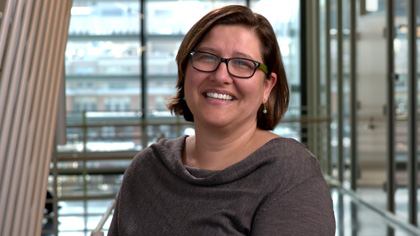
Writing in The Conversation, Margaret Johnson, professor in the University of Baltimore School of Law and co-director of the school’s Center on Applied Feminism, explores the continuing reality of workplace sexual harassment in the #MeToo era. Citing Equal Employment Opportunity Commission statistics that show that only one in four women employees is willing to file a formal complaint against a harasser, she says this low reporting rate can be sourced back to hurdles built into the legal system.
“Based on experience litigating sexual harassment cases as well as my research, I have determined there are three legal barriers that stand in the way of workers filing complaints—a critical step to rooting out harassment and protecting employees,” Prof. Johnson writes.
Prof. Johnson, who also directs UB’s Bronfein Family Law Clinic, describes the barriers thusly:
- Courts have too narrowly defined sexual harassment when it involves a hostile work environment under Title VII of the 1964 Civil Rights Act.
- Employers have been largely shielded from liability when an employee complains of a hostile work environment that fosters sexual harassment.
- Laws punishing retaliation are insufficient.
Prof. Johnson says the solution to the “one in four” problem is not simple, but legislative steps already are being taken to improve outcomes and, over time, stop sexual harassment cold.
“The EEOC and other researchers have identified innovative methods to address sexual harassment, such as a reward system for increased complaints, promoting more women, bystander intervention and civility training,” Johnson writes. “Congress should pay attention and encourage these methods while also toughening existing law.”
Read Prof. Johnson’s article.
Learn more about Prof. Johnson, the Center on Applied Feminism and the Bronfein Family Law Clinic.

